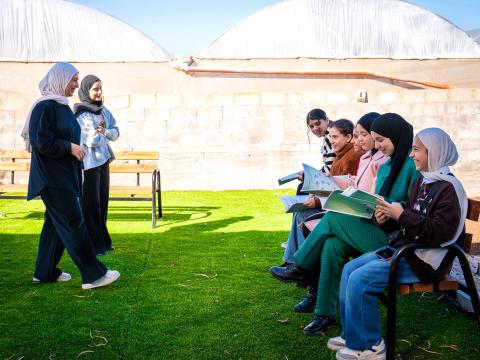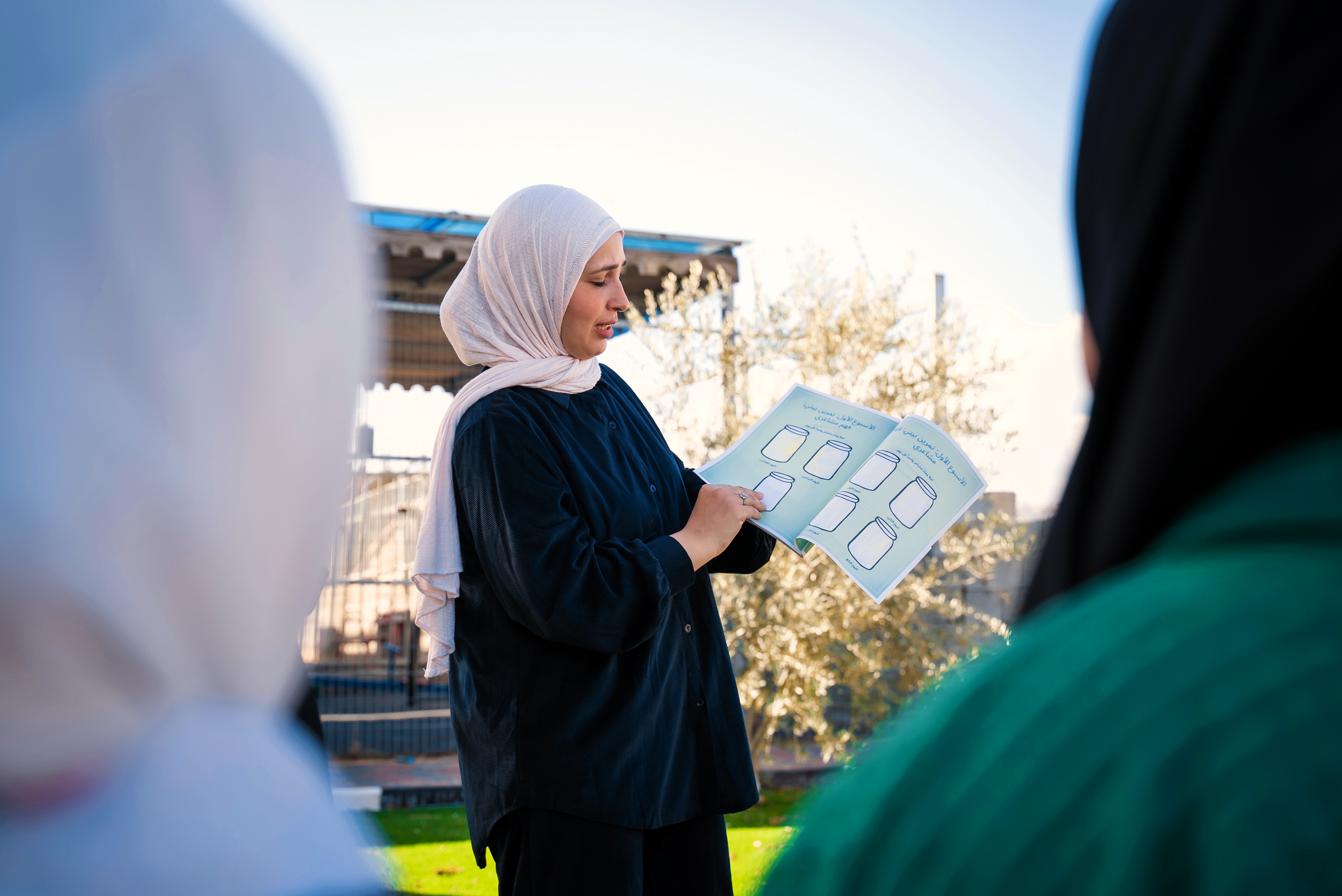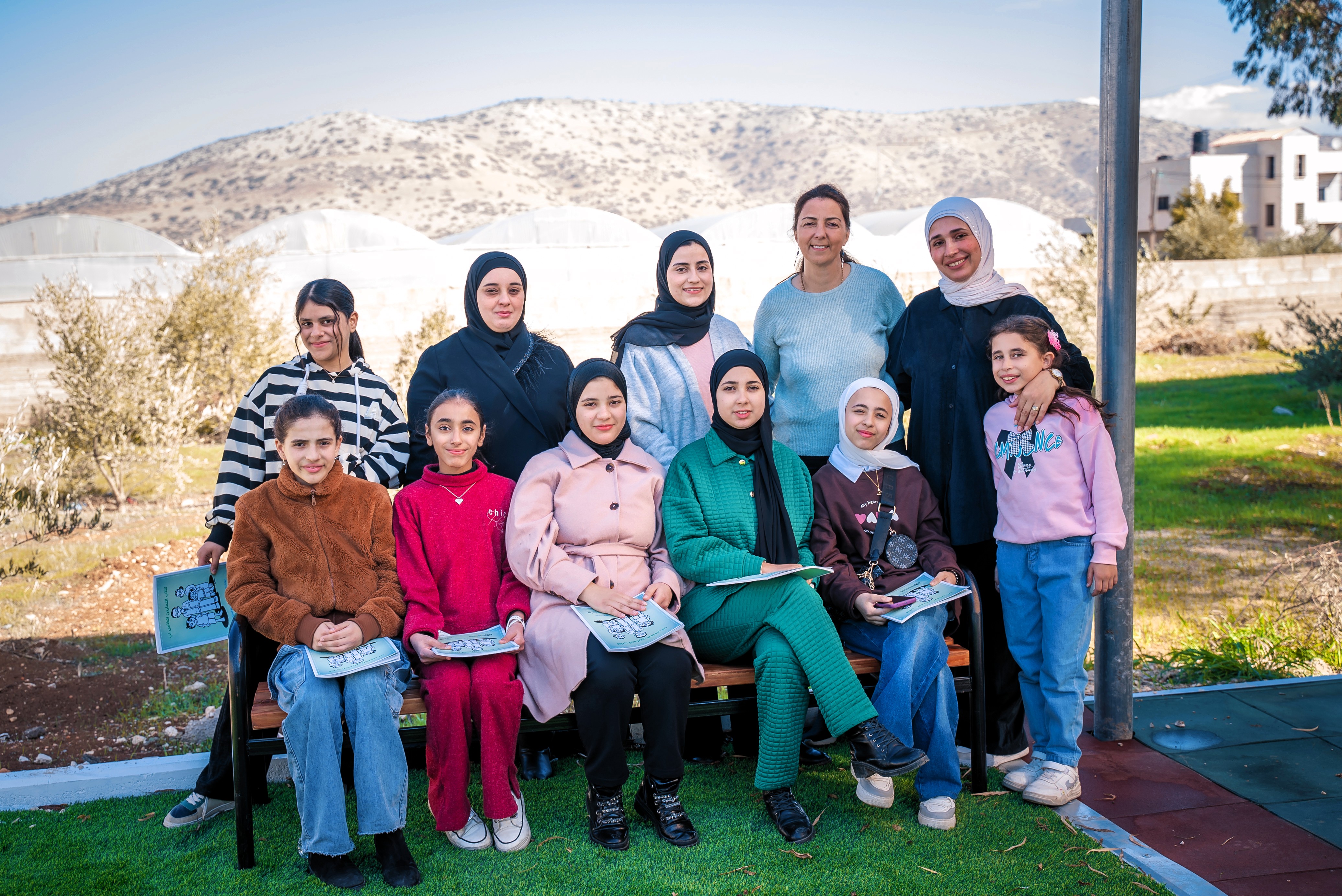You will never be alone: The Transformative Power of “I Support My Friend”

Adolescents in the West Bank have a lot of reasons to worry. Escalating violence, severe restrictions on movements and deep economic crisis are continuously threatening in the background. This uncertainty can take a serious toll on the mental health of the community, especially on children and youth. Under chronic stress and anxiety, they are at risk of developing mental health issues that can have life-long consequences.
To support them, World Vision has launched a new initiative called “I Support My Friend” (ISMF). The programme trains young people to recognise emotional distress among their peers, to offer psychological first aid, and to support each other in kind, informed, and stigma-free ways.
Ghadir, 15, who participated in the training, shared “before taking part in this project, we didn’t really know how to talk about our feelings or how to be there for someone going through a tough time. But now, it’s totally different. We’ve learned how to listen, how to actually care, and how to stick by each other. It brought us closer, and honestly, I feel proud to be able to help my friends for real.”
The programme empowers children and teens with simple but powerful skills—Connect, Listen, Look—so they can recognise when someone is struggling and respond with empathy and support. It’s not about fixing everything; it’s about showing up, being present, and letting your friends know they’re not alone.
Before the programme, mental health was a tough subject for many adolescents. Talking about sadness, anxiety, or feeling alone felt risky, even scary. Adolescents could wonder “are people going to judge me?”. But the training helped break that silence. Participants began to realise that opening up isn’t a weakness—it’s a brave first step toward feeling better. The programme sparked honest conversations and replaced fear and shame with understanding and support.
 The changes didn’t take long to show. Young participants started using what they’d learned, helping friends deal with exam stress, reaching out when someone seemed down, or just listening when someone needed to talk. What began as a training turned into a whole new way of being—where kindness, awareness, and connection became part of everyday life.
The changes didn’t take long to show. Young participants started using what they’d learned, helping friends deal with exam stress, reaching out when someone seemed down, or just listening when someone needed to talk. What began as a training turned into a whole new way of being—where kindness, awareness, and connection became part of everyday life.
Sara, 15, explained “before the training, I didn’t know what to say when my friends were upset. I felt awkward, like I might say the wrong thing. But after the sessions, I started to understand myself better too. Now, I feel more confident helping others. I actually listen, and I am not nervous when someone shares how they feel. It changed how we all talk to each other.”
Rasha, 16, shared how the training helped her support a friend who had become distant. “One of my friends had gone through a lot and she had started pulling away—she stopped talking and seemed really down. Before the programme, I’d probably just leave it alone because I wouldn’t know what to do. But I remembered what we learned about just being there and not judging. I started checking in with her, just gently, and she slowly started opening up. It made me realise how much of a difference a small conversation can make.”
These are just a couple of the many stories coming out of the programme. The impact has spread beyond the participants themselves—kids have brought the lessons home to their families, shared them in their schools, and started changing the way their communities talk about mental health. They’ve become quiet but powerful advocates—not through big speeches, but through their everyday actions.
The “I Support My Friend” programme may seem simple, but its impact is deep. For Ghadir, Sara, Rasha, and so many others, it planted the seeds of resilience, compassion, and hope. These young people aren’t just supporting their friends—they’re lighting the way toward communities where no one has to face their struggles alone.
Beyond this project, since October 2023, World Vision has provided mental health and psychosocial support to 52,000 people while 340 teachers, youth club facilitators and health workers were trained to provide mental health and psychosocial support services and referrals.
